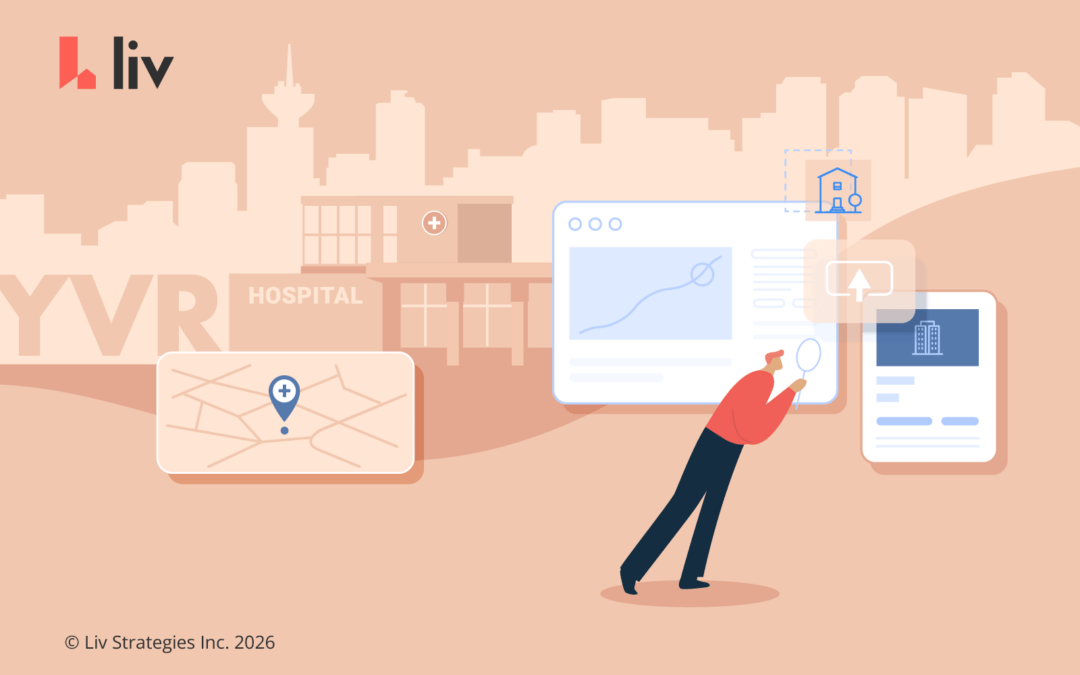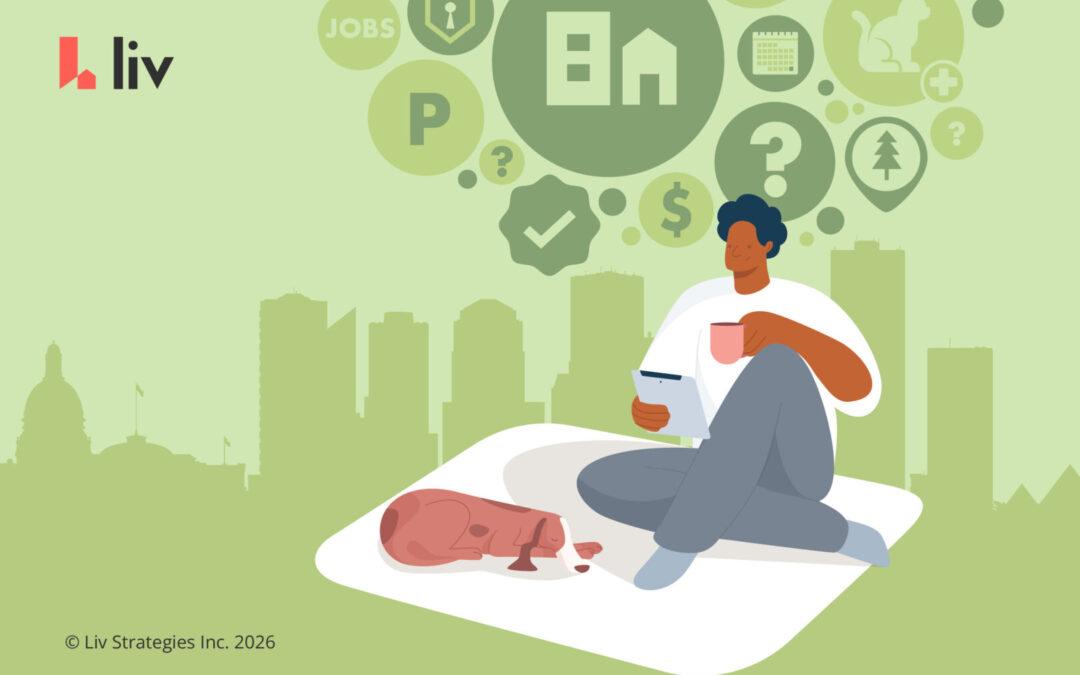Tax season can be a stressful time of year for all Canadians. For landlords and renters in particular, keeping track of the special tax considerations and different types of property taxes & deductions can seem an overwhelming task on top of already busy schedules. While many choose to take advantage of the different types of tax software available in Canada and file their taxes themselves, others prefer the ease of hiring a knowledgeable professional to handle their tax filing. In this post, liv.rent will explore the pros and cons of each approach and provide tips for renters and landlords looking to file on their own in advance of this year’s deadline.
Filing your own taxes
With so many different types of software available to assist Canadians who want to file their own taxes, the DIY approach has become easier than ever. Submitting your yearly return can be daunting, especially if it’s your first time, but with a bit of preparation and understanding of Canada’s taxation laws, almost anyone can file their own taxes.
For renters, you won’t have to worry about much beyond the basic income tax requirements since you won’t be reporting any rental income on your return. With that being said, there are some examples of provincial credits for renters, as well as other benefits that may affect your return – like claiming work-from-home expenses, if applicable.
For landlords, filing your tax return can be a more elaborate undertaking. Not only will you need to report your regular income, but also any rental income you’ve earned – in addition to any expenses related to your rental property. As such, it’s important to maintain accurate, up-to-date records throughout the year to ensure you’re prepared when tax season comes around.
For both parties though, modern tax software can provide plenty of assistance with staying organized and on top of deadlines. Here are some of the biggest benefits and downsides of filing your own taxes.
Pros of filing your own taxes
- Lower costs — By choosing to file your own taxes, you can save plenty of money on the fees and costs of hiring a seasoned professional. The average cost for an accountant or tax professional to prepare your return ranges from $150 to $350 in Canada, but can quickly grow higher – particularly for landlords who own multiple properties or have complex needs.
- Greater control — Filing your taxes on your own means you’re pretty much solely responsible for ensuring the accuracy of your return and accounting for all the available benefits and deductions. This can be a lot of responsibility, but also allows you more opportunity to customize your tax filing process and work around your unique circumstances and eligibility for deductions.
- Building your knowledge of taxation laws — Having at least a basic understanding of how the taxation process works and how to file is a skill that will be beneficial throughout your life. As well, being honest about your income and expenses can lead to increased financial awareness and help you make better decisions in regards to your business or spending.
- Flexibility — While there’s no avoiding the CRA’s deadline for filing tax returns, doing your own taxes allows you to work within this timeframe as you see fit. By contrast, working with a professional will require you to work around their schedule and prepare the necessary information and documents for them well in advance of their specified deadline.
- Potential for more accurate returns — Accountants and tax professionals are particularly busy as the filing deadline approaches and often have to handle hundreds of returns at a time. Through no fault of their own, this can result in mistakes being made or items being missed, particularly if they aren’t supplied with complete and accurate information. While it will require you to develop an understanding of tax laws, filing your own return has the potential to be more accurate since you’ll have the time to look it over yourself and make sure everything is correct.
Questions about filing your own tax return? liv.rent is here to help. Subscribe to our newsletter to stay up-to-date on our upcoming tax webinars – including live advice from Canadian tax experts.
Cons of filing your own taxes
- Time-consuming — The obvious reason why many Canadian landlords or renters would choose not to file their own taxes is time. Many schedules simply don’t allow for spending hours assembling documentation, carefully entering numbers, and thoroughly checking the finished return for accuracy. Especially if you’re unfamiliar with the taxation process and the laws surrounding it, filing your own taxes can quickly become a time-consuming burden.
- Potential for errors — While filing your own return can make for more accurate returns, it can just as easily result in mistakes being made if you’re not careful. Even when they’re busy, tax professionals are familiar with the ins and outs of the filing process and can help give you peace of mind that your return will be correct and not missing any key deductions. This is particularly important as errors can lead to penalties, interest charges, or even the dreaded audit.
- Limited support — Although there are many resources out there to help you file your taxes, you won’t have the same level of support when preparing your own return. Those who go this route should be prepared to research the process on their own and be sure they’re familiar with the process prior to filing.
- Missing deductions — Knowing what benefits and deductions are available to you is key for maximizing your refund or minimizing the amount you have to pay. For the average renter or landlord, it’s easy to miss one of the many provincial or federal credits that you may qualify for, and end up paying more taxes as a result.
- Stress — Let’s face it. Preparing your own tax return is a fairly stressful experience for most people. Worrying about making mistakes and getting audited as a result is common, and can become worse if you own a rental business or have a complex tax situation.
Hiring a professional to file your taxes
For Canadian renters and landlords, hiring an accountant or tax professional to file your taxes can be a great way to keep things stress-free leading up to the filing deadline. With busy schedules and plenty of other things to think about, it can be worth it for many Canadians to outsource their tax return preparations to an expert.
Here’s a quick overview of the benefits and potential negatives that come with paying an accountant to prepare your tax return.
Pros of hiring a professional
- Expertise — Tax professionals have extensive knowledge of Canada’s taxation laws and plenty of experience preparing tax returns. This expertise goes a long way to ensuring that your return is accurate, complete, and compliant with federal laws. Professionals can also help by providing advice and guidance on tax planning and assistance in the case of an audit.
- Time savings — Tax preparation can be time-consuming, especially if you have a complex tax situation. By hiring an accountant, you can free up time and energy to focus on other aspects of your life, such as work, family, and for landlords – the many other responsibilities that come with owning a rental property.
- Peace of mind — Working with an accountant or tax professional can give you peace of mind knowing that your return is being prepared by an expert with tons of experience. Additionally, in the unlikely situation that issues do arise with your tax return or if you are audited by the Canada Revenue Agency, your accountant can provide support and guidance throughout the process.
Cons of hiring a professional
- Cost — Hiring a professional to prepare your tax return can be significantly more expensive than doing it yourself using tax software or traditional methods – especially if you have a fairly simple tax situation. With that being said, costs can vary greatly depending on the complexity of your return, and can often be worth it if you have multiple sources of income or other circumstances that might make filing your return more complicated.
- Limited control — Working with a tax professional means giving up some control over your tax return reparation process. Although the professional will take your input and preferences into account, they will ultimately be the one making decisions about how to prepare your tax return.
- Miscommunication — Clear communication is key when working with a tax professional. If there is miscommunication or a lack of clarity about your tax situation, or if you forget to send over a document or two, it could result in errors on your tax return or missed deductions or credits. It’s important to ensure that you have a clear and open line of communication with your tax professional to ensure that your tax return is prepared accurately and effectively.
Download The Landlord’s Guide To Property Tax Deductions
The ultimate tax guide for landlords in Canada. Everything you need to know about taxes, and how to get a bigger return.
Tax considerations for landlords
On top of the already numerous items all Canadians face when filing their annual tax return, landlords have a number of added considerations to take into account when tax season comes around. Many landlords have another occupation on top of their rental business, and will need to report their income from those streams plus any associated deductions, fees or expenses.
Here are some of the considerations landlords in Canada must take into account when preparing their tax return:
- Rental income — This one is hopefully obvious for most landlords, but it is mandatory to report any rental income you receive on your annual tax return.
- Expenses — Landlords should keep an eye out for deductible expenses related to their rental properties, such as mortgage interest, property taxes, utilities, and repair & maintenance costs. If you do plan on claiming any of these expenses, be absolutely sure that they were incurred for the purpose of earning rental income and that you have adequate records to support any deductions you claim.
- Depreciation — If your rental property’s value has declined in the past tax year, you may be eligible to claim depreciation on your rental property as a deduction on your tax return. This can help reduce your taxable rental income, but it’s important to ensure that you follow the CRA‘s rules and regulations for claiming depreciation, which can get complicated at times.
- Capital Gains Tax — This only applies if you’ve sold an investment or rental property for more than you paid for it. If you are liable for this tax, there are some exemptions and deferrals available to help minimize your tax liability – like the principal residence exemption.
- Property Taxes — Homeowners in Canada are subject to property taxes that are generally paid separately, at a different date from your income tax. These taxes are generally paid directly to the municipality your property is located in. Landlords in B.C. and Ontario in particular should be aware of extra taxes related to property ownership, like the Speculation & Vacancy Tax in B.C. and the Empty Homes Tax in Vancouver specifically, and the Vacant Home Tax in Ontario.
Questions about filing your own tax return? liv.rent is here tohelp. Subscribe to our newsletter to stay up-to-date on our upcoming tax webinars – including live advice from Canadian tax experts.
>> Recommended Reading: Rental Property Tax Deductions In Canada
Tax considerations for renters
Renters, in comparison, have far fewer tax considerations to think about on top of what’s expected from every Canadian. With that being said, there are some deductions that may apply to renters, and general rules you should be aware of when preparing their own tax returns.
Here are some of the considerations renters who file their own taxes should take into account:
- Rent payments are not tax deductible — Renters are unable to deduct rent payments on their annual tax returns in Canada. There are a few rare exceptions to this, but for the majority of renters, rent payments are considered personal expenses and cannot be deducted.
- Moving expenses — If you move to a new rental property for work, school or business reasons, you may be able to deduct some of your moving expenses, like transportation and storage costs, travel expenses, and temporary living expenses on your tax return. However, there are specific rules and criteria that must be met in order to qualify for this deduction.
- Provincial tax credits — In some cases, renters may qualify for province-specific tax credits like the Ontario Trillium Benefit, for example. These credits are often based on income requirements and other criteria, so be sure to check the requirements for qualification.
- Work-from-home expenses — For renters working from home, expenses you incur that are associated with your home office may be tax deductible. There is both a detailed method as well as a temporary flat rate method for claiming these expenses, so be sure to consult the CRA for advice on whether or not you qualify, and your best option for claiming expenses.
Questions about filing your own tax return? liv.rent is here to help. Subscribe to our newsletter to stay up-to-date on our upcoming tax webinars – including live advice from Canadian tax experts.
>> Recommended Reading: Renter’s Guide To Getting A Bigger Tax Return with Taxback
Tips for filing your own taxes
Tips for landlords
- Don’t overlook common expenses — Keep records of any eligible expenses you incur from your rental property, like property insurance, interest, professional services, office supplies, repairs & maintenance, and utilities.
- Always claim interest payments — While Canadian homeowners can’t deduct their mortgage payments, you are eligible to claim any interest incurred on the amount borrowed to maintain your investment. This includes interest on your mortgage, line of credit, or any other type of loan associated with your investment property.
- Differentiate between current and capital expenses — Essentially, current expenses refer to anything that keeps your property reasonably maintained. Capital expenses go beyond this, adding considerable value to your rental property. This includes things like repairs that extend the life of your property, improve it beyond its original condition, or any repairs made in advance of selling your property.
- Stay organized — Filing your annual tax return is much easier if you already have all the necessary documentation assembled and are aware of what’s expected of you. Well in advance of the deadline, be sure you’ve collected everything you need and make sure all your forms are available through the CRA if you’re filing online using tax software.
Download The Landlord’s Guide To Property Tax Deductions
The ultimate tax guide for landlords in Canada. Everything you need to know about taxes, and how to get a bigger return.
Tips for renters
- Use certified tax software — There’s a lot to keep track of during tax season, but you don’t have to do it alone. Thankfully, there are plenty of free tax software options in Canada that are NETFILE-certified by the CRA. Not only do these programs help save you time and prepare a more accurate return, they can often do a large part of the work for you by automatically finding relevant documents for your return from the CRA database.
- Take advantage of tax credits — There are several tax credits and deductions that may be available to renters in Canada, such as the Ontario Trillium Benefit, the GST/HST credit, or the Climate Action Incentive. Make sure to review the eligibility criteria for each and claim all the credits you’re entitled to.
How liv.rent can help you file your own taxes
Bookkeeping and keeping track of your key documents are crucial parts of preparing for tax season. For both landlords and renters, there’s plenty of information that you might need when preparing your return.
To this end, liv.rent’s Chat Timeline feature is an easy way to stay organized and view all your necessary documentation in one convenient online location.
For landlords, liv.rent also provides detailed income expense statements as part of our Growth plan, which are stored securely in the cloud for easy access. As well, rent payments can be processed directly through the platform with multiple ways to pay and automated reminders to ensure you never miss a payment.

Rethink The Way You Rent
Not on liv.rent yet? Experience the ease of digital applications & contracts, verified tenants & landlords, virtual tours and more – all on one platform. Sign up for free or download the app.
Subscribe to receive the latest tenant & landlord tips and get notified about changes in the Canadian rental market.
>> Stay up-to-date on the average rent in Vancouver, Toronto and Montreal: Rent Reports.




0 Comments